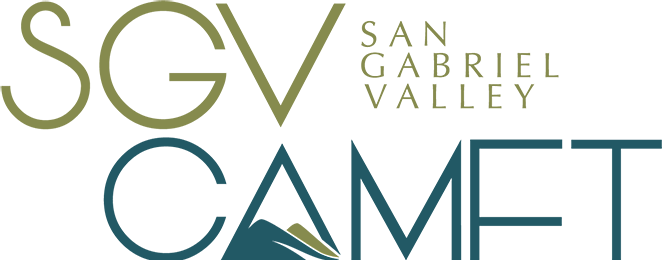|
When clients pay for therapy in your practice, what type of payment do you accept? Check? Cash? Credit Card? Debit Card? HSA or FSA Card? Money Order? Yes, they still issue money orders. Today there are so many options to choose from for client payment. How do we decide which one is best for us and our practice? What are legal and ethical options available to therapists to get paid fast and not have to pay too much in bank or credit card charges? This is the sixth article in a series on Getting Paid: Talking with Clients About Money Matters:
Not too long ago clients handed their therapist cash or a check before or after the session; were sent an invoice/billed at the end of the month; and then mailed or brought in their check or gave the therapist cash at the next therapy session. Should you consider adding or changing the type of payment you accept for therapy charges? How can a therapist decide which forms of payment are best for their therapy practice? With whatever types of payment you decide to accept in your therapy practice, it’s important to look at how much it costs you or saves you—in time, energy, wait time for funds, as well as charges/money—to process those funds and get them into your practice bank account. Therapists, like most small business owners, are always wanting to know what the best way is to get paid and increase their available cash. They want to know how to get their funds into the bank as quickly and easily as possible and how to pay the lowest possible amount to do that. Having earned this money, therapists want to take home as much of it as possible, save time, and have more clients. In fact, the most common reason therapists give for accepting only check or cash is that it costs money (just under 3% of each transaction) to take credit cards. And, as you have probably heard, most therapists do not like to--or want to—pay any credit or debit card, or other type, of processing charges since this amount is subtracted from what the therapist is paid. However, contrary to popular lore, whatever type of payment a therapist accepts for therapy sessions, it costs the therapist something. At the very least it costs time, energy, effort, and time before the funds can be accessed, and it can also cost money per transaction. How is it worth it for a therapist to take card and electronic payments and pay those transaction fees? Giving your clients more ways to pay can increase the number of clients in your practice and improve your cash flow. It's a fact that most clients expect to be able to use credit or debit cards when paying for things. Today’s clients, whether no matter what their age, find it convenient to pay via credit or debit card, or directly from their HSA or FSA. If you do phone, video or other types of virtual or remote sessions, credit card and electronic payments are essential because they enable the client to pay you before or after the session. More payment options that are convenient means more access to care for a larger number of people—and result in more clients in your practice. Whether a therapist accepts payment by electronic means--credit card, debit card, e-check, wire transfer, Zelle, Venmo, etc.—depends on both the therapist and clients’ preferences and needs. Many therapists find that their number of paid weekly client hours increase when they accept credit cards. Clients often like to get rewards--points or miles or cash back—when they pay for therapy. If you don’t accept credit cards but accept checks or a bank transfer of funds, clients who want the rewards can use Plastiq. With Plastiq a client can pay with a credit card—and even split the charge between two different cards—and the therapist is sent a paper check or receives a bank transfer right away, just as if the client had paid with a credit card. Another benefit to the therapist with Plastiq is that the client pays the credit card processing fee, the therapist doesn’t. Many therapists love that because it means they receive all the money paid for the session. For therapists, card and electronic payments can mean freeing up more time, energy, and effort—and quicker access to funds because of the following:
One way to increase income from your practice and not have to pay any transaction fees is to have your clients pay you using Zelle or Venmo. One therapist I coached added Zelle to his practice in addition to credit cards as a payment option and increased his take home earnings $100 per month because he didn’t have to pay that amount in credit card fees. That was a very easy way to bring in $1200 more that year. Another therapist in one of my practice development groups added Venmo as a payment option when a client suggested it. When using Venmo, the client pays through the app at the end of the session—just a couple of clicks—then there's a ding on the smartphone, the therapist receives it, opens the app, clicks on the amount of the balance. then clicks on the deposit button. Voila! Two days later it’s in her account. If she wants it instantly then she clicks on the instant deposit button and pays a small fee, then it’s deposited in her account shortly after that. Here are some descriptions of options for getting paid spelled out:
Credit Card processing companies that therapists report using are: Square, PayPal, Stripe, Ivy Pay or their bank. These companies also process debit cards and bank funds. These processors charge/keep a small percentage of the dollar amount of the transaction, usually just under 3%. Some therapists use a credit card terminal to swipe or insert cards—this is purchased from the card processor by the therapist—others use an app on their phone or tablet. I use the Square Terminal in my office and have it on my desk; it’s easy to read, insert cards in, and processes very rapidly. Very professional, convenient, and easy to use. Venmo and Zelle transfer funds from the client’s bank account and deposits into the therapist’s bank account. They do not charge/keep any amount from the transaction. However, for instant transfers, Venmo does charge a small amount, equivalent to a credit card processing fee. Plastiq, as described, charges the client’s credit card and deposits the full amount, no charge to the therapist, into the therapist’s bank account. The credit card processing charge is paid by the client in addition to the amount the therapist is paid. HSA (Health Savings Account) and FSA (Flexible Savings Account) Cards are debit cards and are processed the same way. Clients who have HSA and FSA cards like to use those because they aren’t taxed on that income since it can only be used for qualified healthcare expenses—therapy is one. HSA and FSA cards help clients with high-deductible health insurance plans cover their out-of-pocket costs. Another thing to note about HSA cards is that contributions, up to the yearly IRS limit, can come from the client, the employer, a relative or anyone else who wants to add to the HSA. So now you’ve had a presentation of a number of the options available to therapists for getting paid fast, and in easy, convenient, and cost-effective ways. By no means does this article include every option available to therapists as there are many more not mentioned here. Should you decide to add some new payment options to your practice it will, I’m sure, give you added time, money, and clients. See what differences these new options bring to your practice.
1 Comment
Leave a Reply. |
Lynne Azpeitia, LMFTFor 10+ years Lynne Azpeitia has helped therapists to live richer and happier lives through her workshops, private practice and career coaching, and her practice consultation groups which train, support, and coach licensed therapists, interns & students how to create and maintain a successful, thriving clinical practice and a profitable career Archives
November 2023
Categories
All
|
Lynne Azpeitia, LMFT (310) 828-7121
AAMFT Approved Supervisor
Coaching Clinicians for Practice & Career Success
Online and In-Person
3025 W. Olympic Blvd
Santa Monica, CA 90404
&
Phone, FaceTime, What's App & Video Sessions Available for Coaching & Psychotherapy
Coaching, Workshops, Training & Consultation
www.lapracticedevelopment.com
Psychotherapy
Online and In-Person
&
Business, Personal, & Creative Coaching
Specializing in Coaching & Psychotherapy for
GIFTED, TALENTED & CREATIVE ADULTS
www.gifted-adults.com
© 2017-2024 Lynne Azpeitia All Rights Reserved






